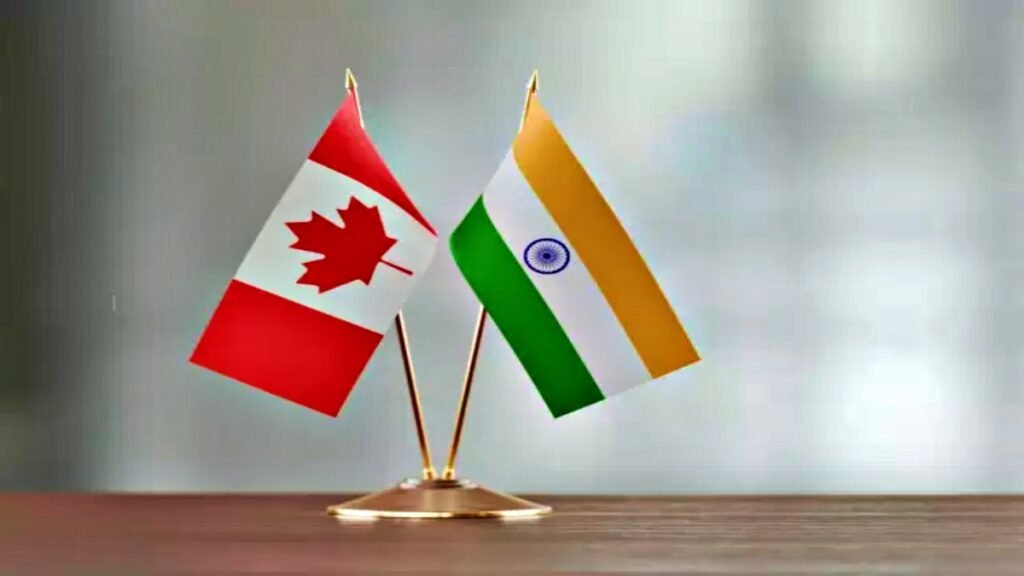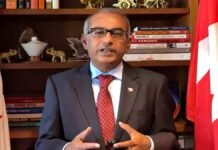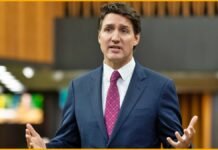
New Delhi: India’s decision to expel 41 Canadian diplomats over a row involving the killing of a Sikh separatist leader in Canada has drawn criticism from the UK and the US, who have expressed their solidarity with Canada. The UK and the US, who are part of the ‘Five Eyes’ intelligence alliance along with Canada, Australia, and New Zealand, have urged India to respect the Vienna Convention on diplomatic relations and to cooperate with an independent investigation into the death of Hardeep Singh Nijjar.
Nijjar, who was a wanted terrorist in India for his involvement in the Khalistan movement, was shot dead by unidentified gunmen in Surrey, British Columbia, in June this year. Canada’s Prime Minister Justin Trudeau accused India of having a role in the assassination, citing intelligence reports that suggested an Indian agent was behind the attack. India vehemently denied the allegations and accused Canada of interfering in its internal affairs.
The diplomatic spat escalated when India warned Canada against unilaterally revoking the status of its diplomats in India, citing a lack of reciprocity and balance in their bilateral relations. India also claimed that Canada had violated the Vienna Convention by granting immunity and privileges to some of its diplomats that were not accorded to Indian diplomats in Canada. As a result, 41 Canadian diplomats had to leave India by October 15.
The UK’s Foreign, Commonwealth and Development Office (FCDO) issued a statement on Friday, expressing its disagreement with India’s move. “We do not agree with the decisions taken by the Indian government which resulted in the departure of many Canadian diplomats from India,” the statement said. “Resolving differences requires dialogue and diplomacy in the respective capitals. We hope that all nations will maintain their obligations under the 1961 Vienna Convention on Diplomatic Relations. The unilateral removal of privileges and immunities protecting diplomats is not consistent with the principles or effective functioning of the Vienna Convention. We will continue to encourage India to join Canada in an independent investigation into the death of Hardeep Singh Nijjar.”
The US also supported Canada’s position and expressed its concern over the withdrawal of Canadian diplomats from India. The US State Department said it was ‘concerned’ by the situation and hoped that India would abide by its obligations under the 1961 Vienna Convention on Diplomatic Relations. “We stand with our Canadian ally and urge India to respect the Vienna Convention and to work constructively with Canada to resolve this issue,” a spokesperson for the State Department said.

India rejected the attempts by Canada, the UK, and the US to portray its actions as a violation of international norms. The Ministry of External Affairs said that ensuring two-way diplomatic equality was in line with the provisions of the Vienna Convention on Diplomatic Relations. “We reject any attempt to portray the implementation of equality as a violation of international norms,” the ministry said. “The state of our bilateral relations, the very high number of Canadian diplomats in India, and their continued interference in our internal affairs warrant parity in mutual diplomatic presence in New Delhi and Ottawa.”
The ministry also reiterated its denial of any involvement of Indian agents in Nijjar’s killing and said that Canada had failed to provide any credible evidence to support its claims. “We have strongly rejected the baseless allegations made by Canada regarding the involvement of Indian agents in the killing of Hardeep Singh Nijjar,” the ministry said. “We have also asked Canada to share any information or evidence that it may have in this regard. So far, we have not received any response from Canada on this matter.”



















































